
In the annals of music history, Ella Fitzgerald stands as an unrivaled legend, a virtuoso whose voice transcended genre boundaries and touched the hearts of millions around the world. Born on April 25, 1917, in Newport News, Virginia, Ella Fitzgerald's journey from a troubled childhood to becoming one of the most celebrated singers of the 20th century is a testament to her unparalleled talent, resilience, and the enduring power of music. In this article, we'll explore the life, career, and lasting legacy of the extraordinary Ella Fitzgerald.


Early Life and Early Musical Development
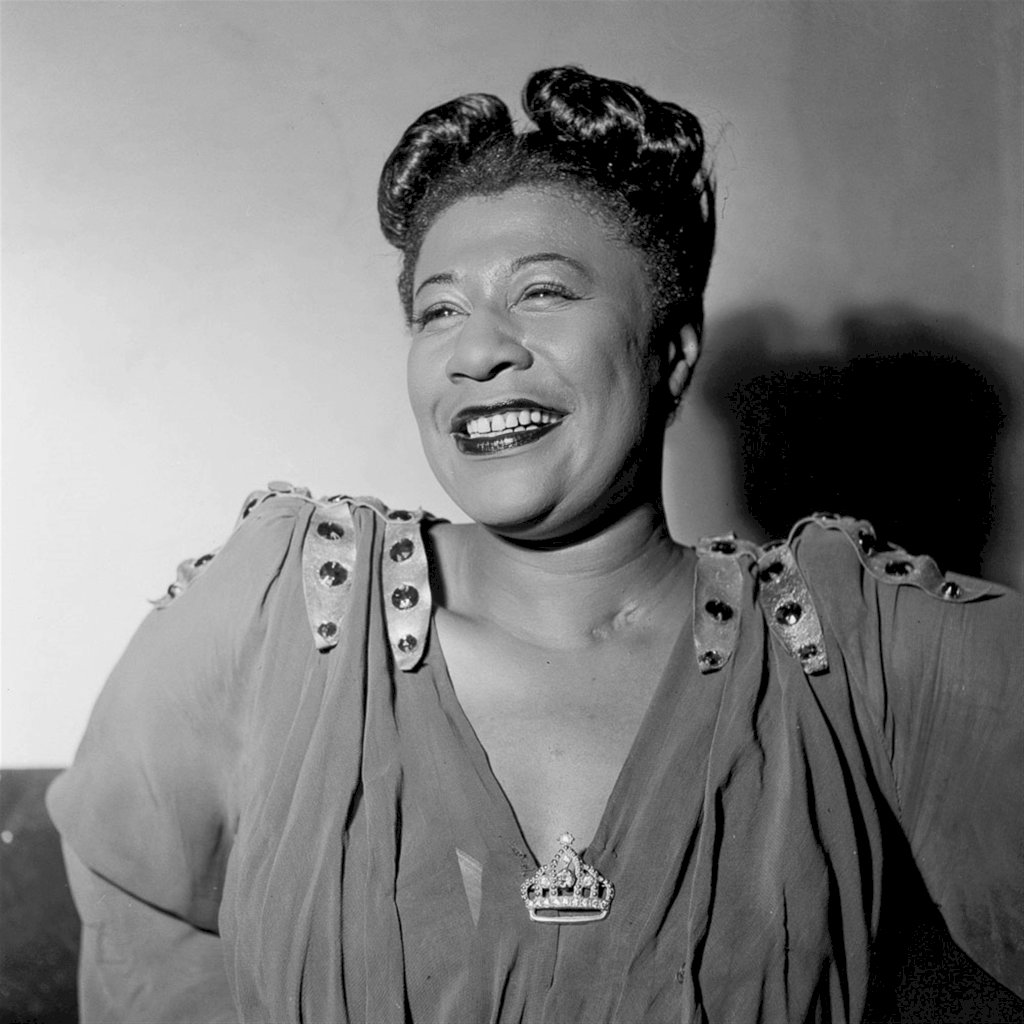

Ella Jane Fitzgerald was born on April 25, 1917, in Newport News, Virginia. Shortly after her birth, her parents separated, and Ella and her mother relocated to Yonkers, New York. Tragically, her mother passed away when Ella was just 15 years old, leaving her in the care of her stepfather.
During her difficult teenage years, Fitzgerald found solace in music. She was an avid fan of jazz and big band music and admired the vocal stylings of artists such as Louis Armstrong and Bing Crosby. Inspired by these performers, she began singing and performing at amateur nights in Harlem's famed Apollo Theater.

It was at one of these amateur nights in 1934 that Fitzgerald had her breakthrough moment. She had originally planned to dance, but after seeing another performer excel in that category, she decided to sing instead. With nervous excitement, the young Ella took to the stage and performed the Hoagy Carmichael standard "Judy." Her captivating voice and natural talent impressed the audience, and she took home the top prize.
The Debut and Collaboration with Chick Webb
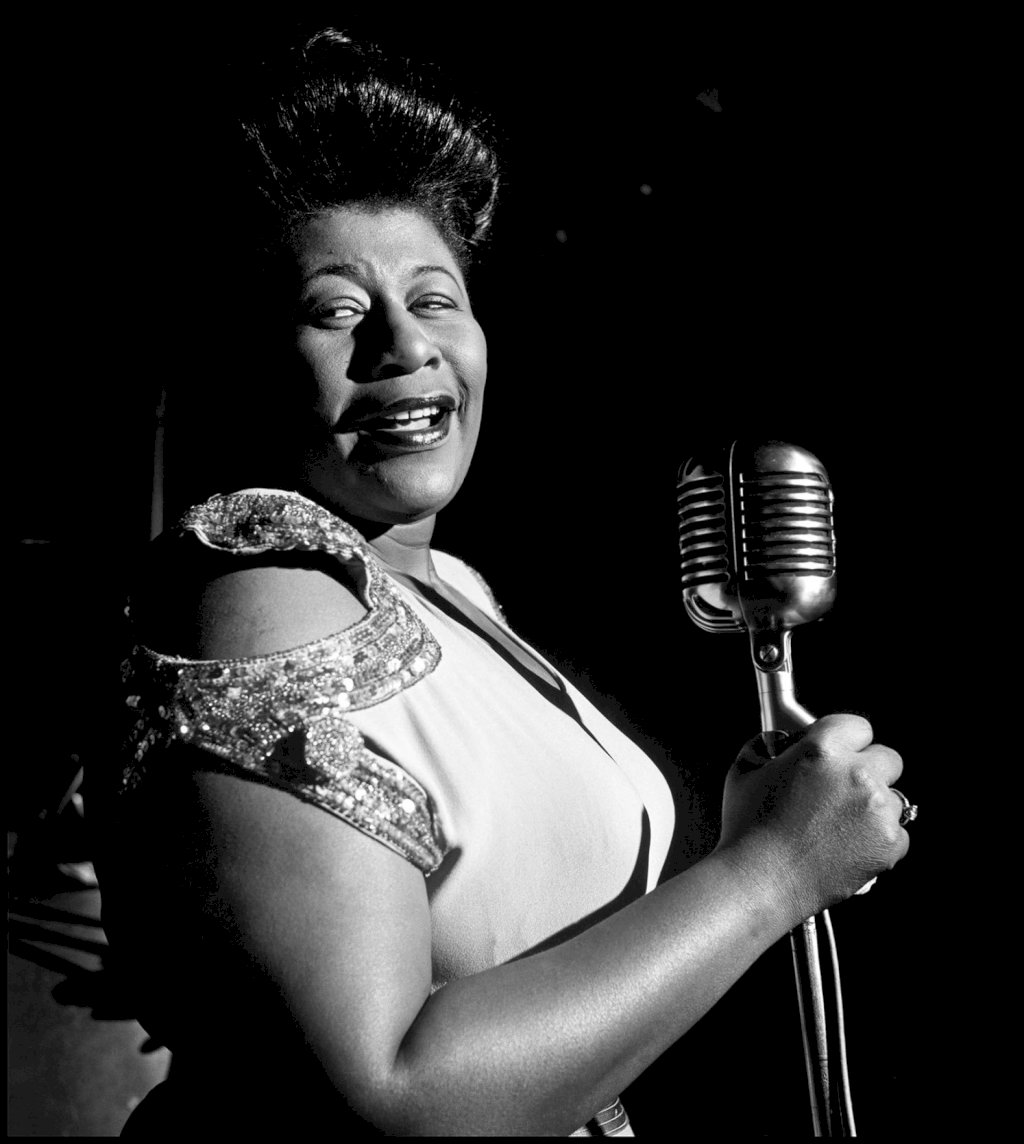

After her success at the Apollo Theater, Fitzgerald's talent caught the attention of drummer and bandleader Chick Webb. He offered her the opportunity to join his band, the Chick Webb Orchestra, as their lead singer. Despite her young age, Fitzgerald quickly became the band's star attraction, thanks to her vocal range, phrasing, and ability to scat-sing, a style of vocal improvisation.
One of Fitzgerald's most famous early recordings with Chick Webb was the song "A-Tisket, A-Tasket," which became a major hit in 1938. This song catapulted her to national fame and solidified her status as one of the leading vocalists of the time.
Solo Career and the Birth of Verve Records

After Chick Webb's untimely death in 1939, Fitzgerald embarked on a solo career. She signed with Decca Records and released several successful recordings, including her rendition of "Flying Home" and "Stone Cold Dead in the Market," a duet with Louis Jordan.
However, it was in the 1950s that Fitzgerald's career reached new heights when she signed with Verve Records, a label founded by Norman Granz, a renowned jazz impresario and producer. The partnership with Granz was a turning point in Fitzgerald's career, as he provided her with artistic freedom and resources to explore various musical styles and collaborate with some of the greatest musicians of the era.
The Songbook Series and Immortalizing American Standards

One of the most significant achievements of Ella Fitzgerald's career was her iconic "Songbook Series," a collection of eight albums released between 1956 and 1964. These albums featured Fitzgerald's interpretations of classic American songs written by the greatest composers of the time, including George Gershwin, Cole Porter, Irving Berlin, and Duke Ellington.
The "Songbook Series" showcased Fitzgerald's incredible versatility as a vocalist and her ability to infuse each song with her unique charm and artistry. With her flawless phrasing, crystal-clear tone, and impeccable sense of timing, Fitzgerald brought new life to these beloved American standards, cementing her status as one of the greatest vocal interpreters in the history of jazz.
Collaborations and Musical Partnerships
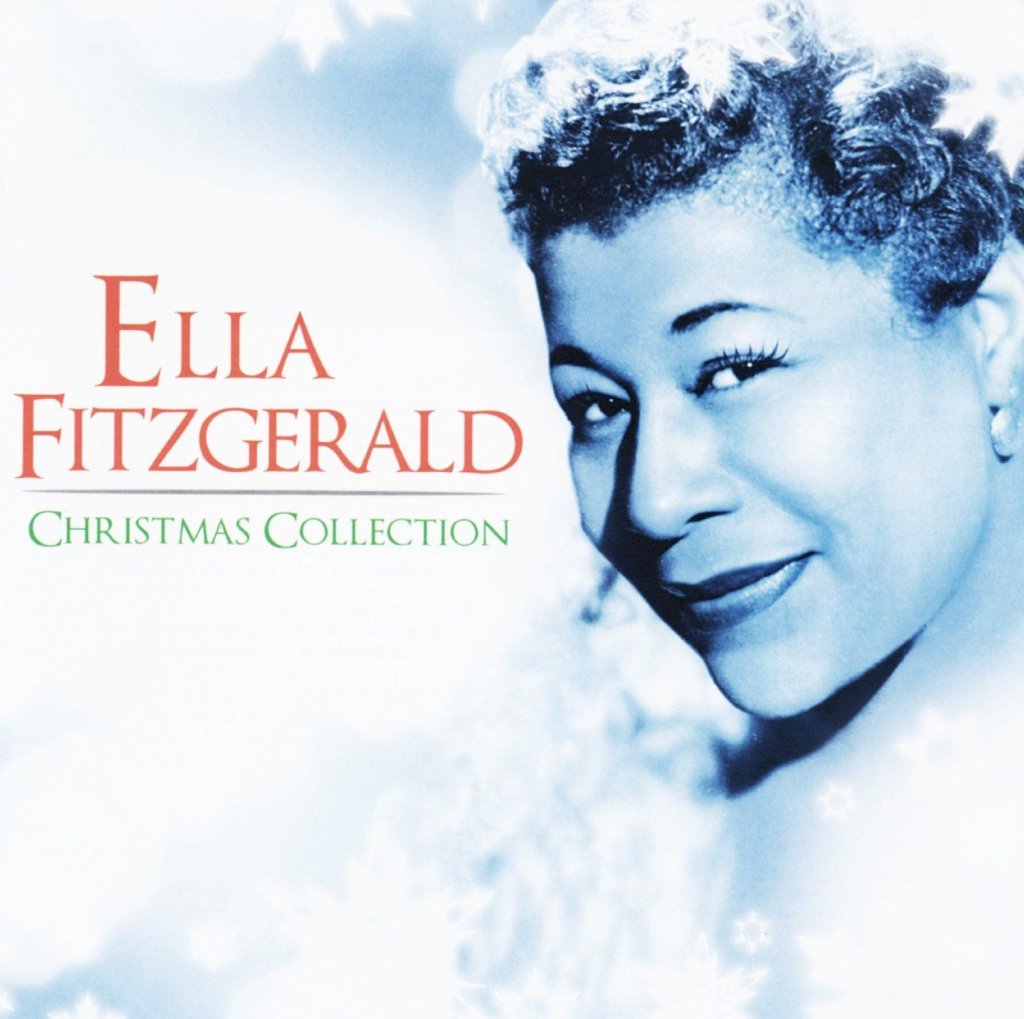
Throughout her career, Ella Fitzgerald collaborated with numerous legendary musicians, both as a solo artist and in duets. Her famous duets with Louis Armstrong, recorded for Verve Records, remain some of the most cherished recordings in jazz history. Songs like "Dream a Little Dream of Me" and "They Can't Take That Away from Me" showcased the delightful chemistry between the two iconic performers.
Additionally, Fitzgerald collaborated with jazz pianist Oscar Peterson, with whom she recorded the album "Ella and Oscar," a display of their exceptional musical rapport. She also worked with other jazz luminaries, such as Count Basie, Duke Ellington, and Joe Pass, among others.
Crossover Success and Popularity
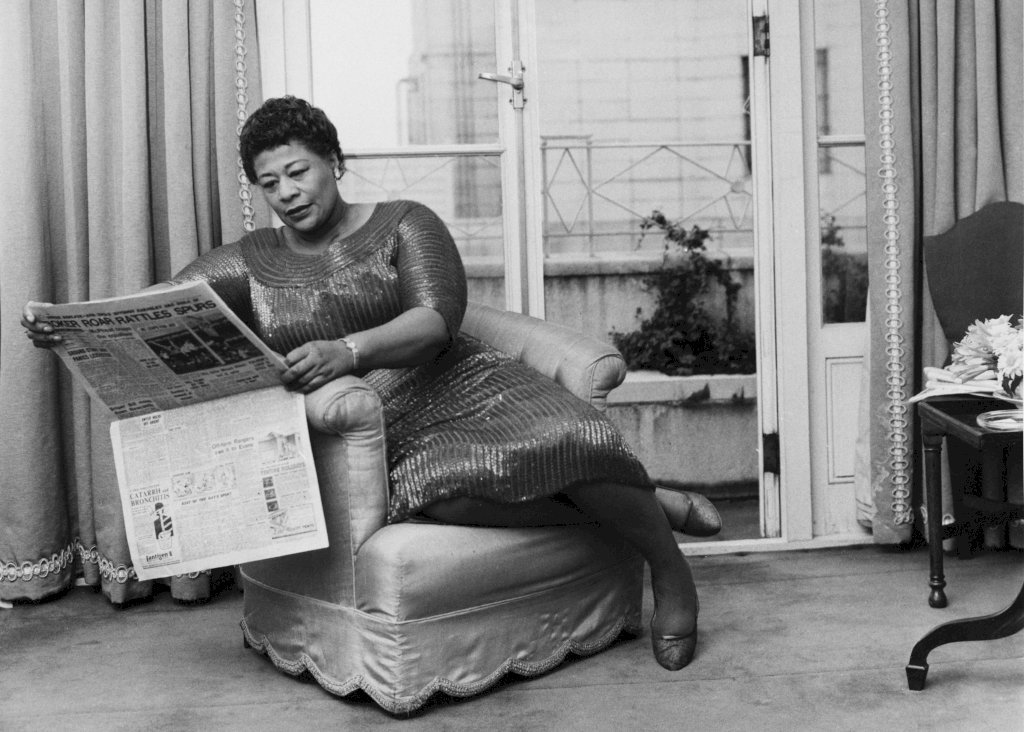
Ella Fitzgerald's immense vocal talent and musical versatility allowed her to achieve crossover success. While her roots were firmly grounded in jazz, she effortlessly adapted her style to various genres, including swing, bebop, ballads, and even popular music.
Fitzgerald's popularity extended beyond the jazz world, and she became a beloved figure with mainstream audiences. Her engaging personality and warm stage presence endeared her to fans worldwide, making her a sought-after performer on the international stage.
Awards and Recognition
Throughout her career, Ella Fitzgerald received numerous awards and accolades for her contributions to music. She won 13 Grammy Awards, including the Lifetime Achievement Award and the inaugural Grammy for Best Female Vocal Performance.
In 1979, Fitzgerald was bestowed with the National Medal of Arts, and in 1987, she received the Presidential Medal of Freedom, the highest civilian honor in the United States, in recognition of her cultural contributions.
Challenges and Personal Triumphs
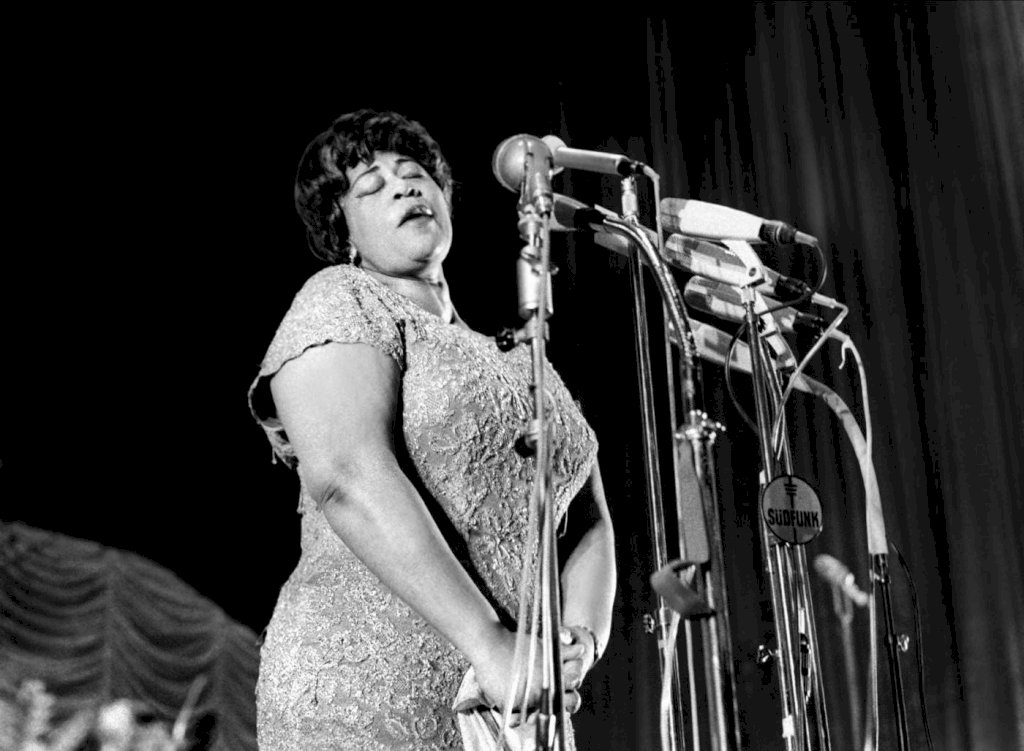
Despite her immense talent and professional success, Ella Fitzgerald faced challenges in her personal life. She battled with health issues, including diabetes, and struggled with the pressures of fame and the demands of a rigorous touring schedule. However, her love for music and her dedication to her craft always prevailed, and she continued to captivate audiences with her remarkable performances.
Legacy and Enduring Influence
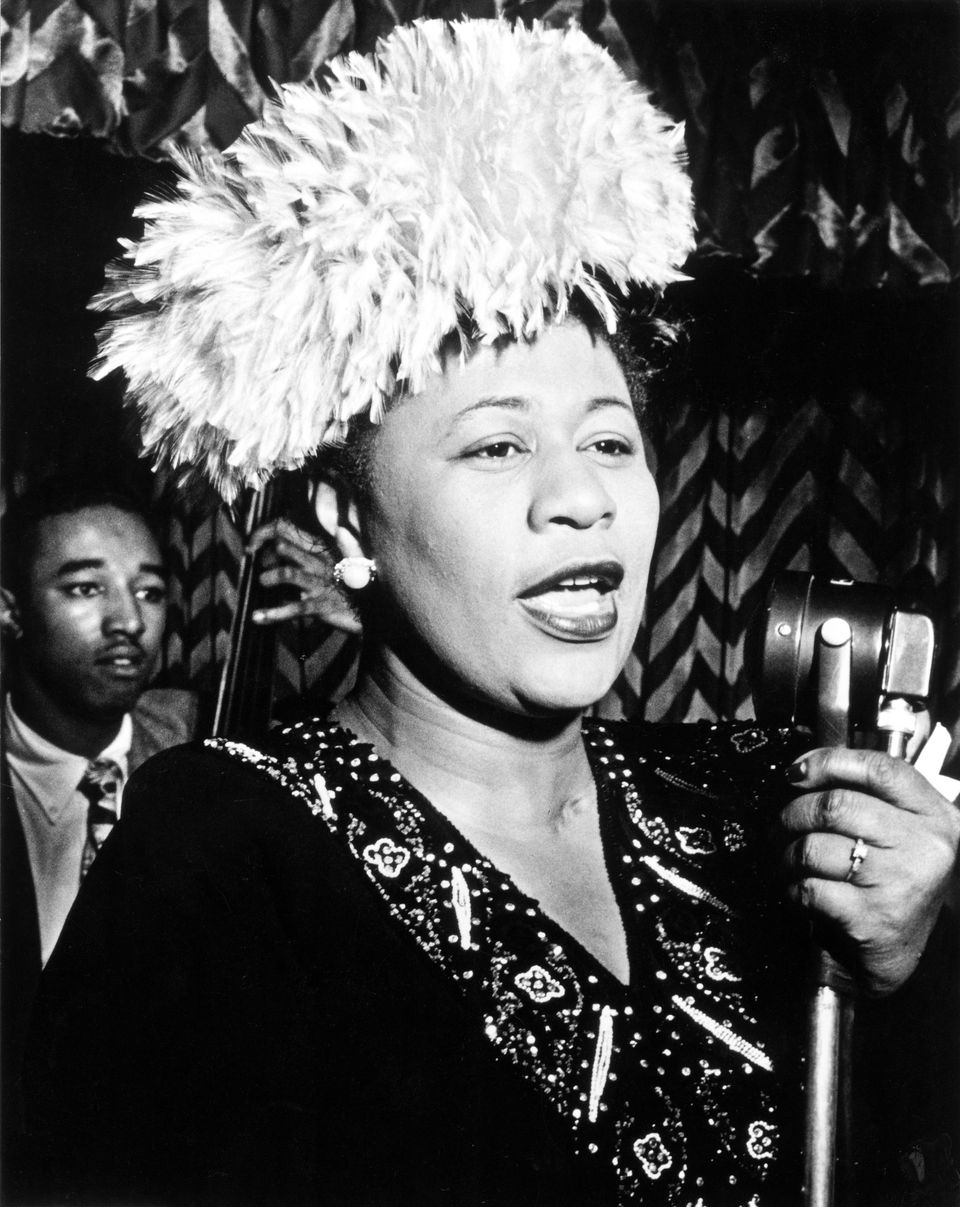
Ella Fitzgerald's legacy remains profound and far-reaching. Her remarkable vocal range, innovative scat-singing, and impeccable phrasing have left an indelible mark on generations of singers and musicians. She was an inspiration to countless artists who followed in her footsteps, including Sarah Vaughan, Diana Krall, and Norah Jones, among others.
Moreover, Fitzgerald's contributions to jazz and American music are celebrated not only for her vocal talent but also for her role in breaking down racial barriers in the music industry. As an African American woman, she achieved extraordinary success during a time when segregation and discrimination were prevalent. Her achievements paved the way for future generations of black artists and opened doors for them in the music world.
Conclusion
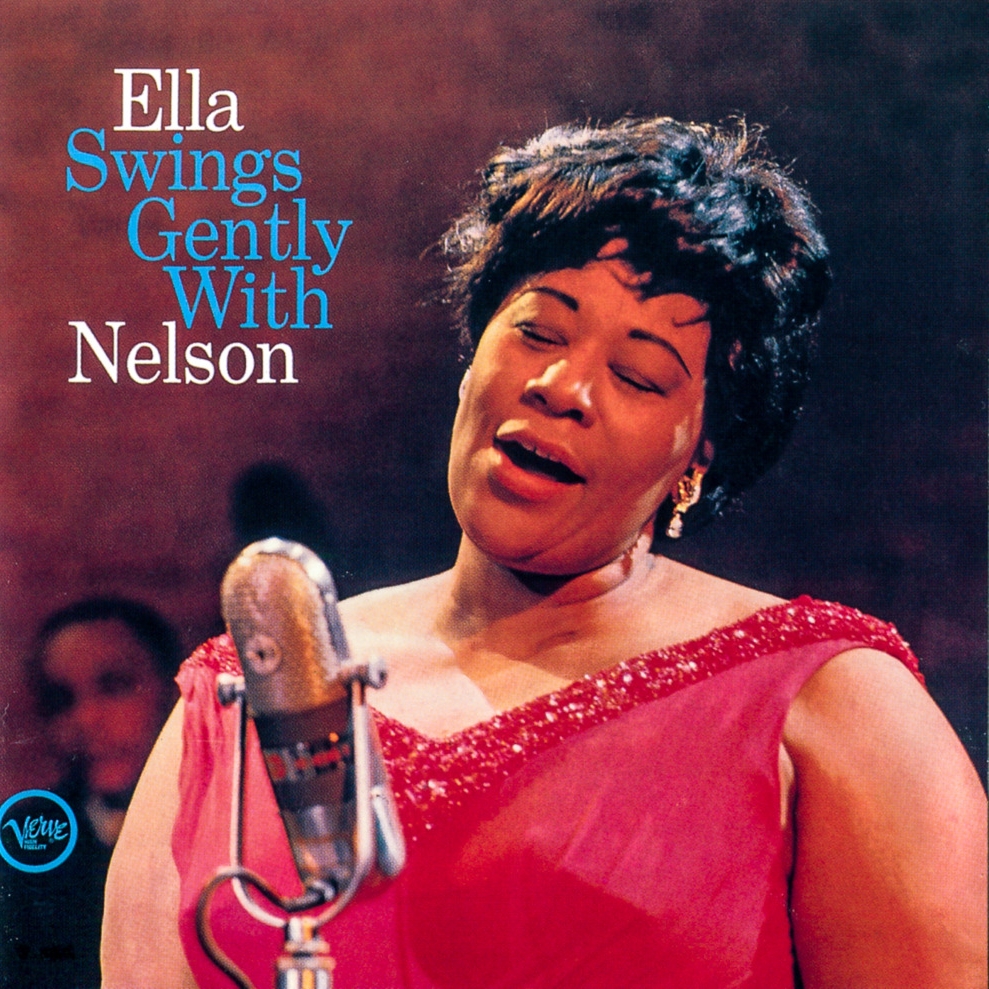
Ella Fitzgerald's musical legacy remains unparalleled. Her extraordinary vocal talent, versatility, and ability to interpret American standards have made her a timeless icon in the world of jazz and beyond. Through her recordings, performances, and enduring influence on subsequent generations of musicians, she continues to inspire and captivate audiences worldwide.
Ella Fitzgerald's impact extends far beyond her vocal prowess; she was a trailblazer, a cultural ambassador, and an advocate for civil rights. Her unwavering commitment to her art, her genuine love for music, and her trailblazing spirit have solidified her place as one of the greatest musical talents of the 20th century and a true legend of American music history.
